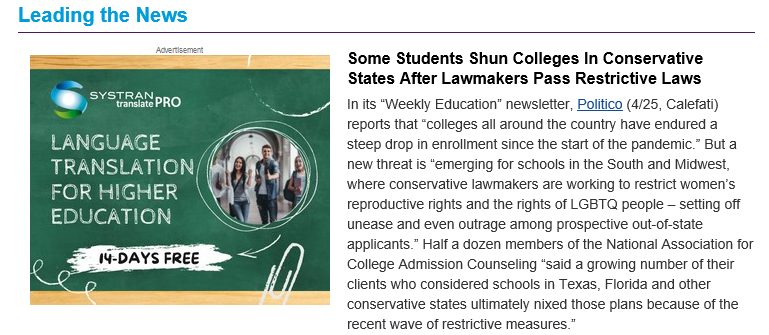
Thread: May 1 (or 2, this year).
This week a counselor contacted me and asked what percentage of freshman deposits came in very near the deadline, and whether there was any data on this phenomenon.
She had a parent who was worried because a child had not yet deposited.
This week a counselor contacted me and asked what percentage of freshman deposits came in very near the deadline, and whether there was any data on this phenomenon.
She had a parent who was worried because a child had not yet deposited.
So, as I often have to tell people,"no there is no data published on this little narrow but interesting question, sorry." But then I talked about my experience: Depending on the place I've worked, you might get 25% of your freshman deposits in the week leading up to May 1 (or 2)
If you are heavy in ED like some highly rejectives, you might get 60% in January, so you might get 25% of the 40% that last week. Even that 10% is a lot.
And it's also important to remember that 90% of US colleges and universities take apps past May 1 (or 2) each year.
And it's also important to remember that 90% of US colleges and universities take apps past May 1 (or 2) each year.
May 1 ends up being the effective "college decision day" for most of those places even though it doesn't mark the end of the cycle.
Most admissions offices are open all summer.
Most admissions offices are open all summer.
May 1 is a funny day, and COVID taught us that it's kind of meaningless. We were the first university in the pandemic to extend our deadline to June 1 in 2020, and we later followed UO's lead and moved it to September 1. And the world didn't end.
Like a lot of things (SAT, LORs, essays), many colleges do May 1 because the highly rejectives do it. And because the process of admission to the rejectives has been turned into both a pageant and a circus, we now have College Decision Day (following the videos of Release Day).
So, (I'm getting to the point here, eventually) even though May 1 is not technically important, it has become so to most four-year colleges.
And that 25%?
Sometimes it doesn't come.
And that 25%?
Sometimes it doesn't come.
I've had years when you wait for that one big day: April 29 or 30, or, when we only got deposits via USPS and a check, May 3. You stopped blaming the USPS about May 5 when that feeling started to sink in that this was going to be a less-than-successful year.
Rejectives would go to the wait list. Everyone else knew it would be a long summer, when you measured daily deposits with the fingers of one hand.
So (here comes the point of all of this), this is hard week for those of us who live and die with "the number."
So (here comes the point of all of this), this is hard week for those of us who live and die with "the number."
There's not been many days in the last three-plus decades that I didn't wake up thinking about "the number." It's something you understand if you do this, and something you can't if you don't.
One DOFA who became a VPEM once told me, "I thought I knew what it meant to worry about enrollment. I had no idea." (She may like this tweet, in fact, LOL).
If you see your friendly EM or admissions officer this week, just know it's a tough week, even if, on April 28th, things are looking good.
They'll be refreshing Slate every 30 minutes to make sure the world is not collapsing.
Give them a hug (after you ask permission).
They'll be refreshing Slate every 30 minutes to make sure the world is not collapsing.
Give them a hug (after you ask permission).
I'm reminded of Thomas Wolfe's, "Man’s youth is a wonderful thing: it is so full of anguish and of magic and he never comes to know it as it is, until it has gone from him forever."
So too, the week leading to May 1 is filled with magic and anguish. And you can't know it unless you do it.
Here's to some magic for you this year.
Here's to some magic for you this year.
Oh, and #EMTalk
• • •
Missing some Tweet in this thread? You can try to
force a refresh







